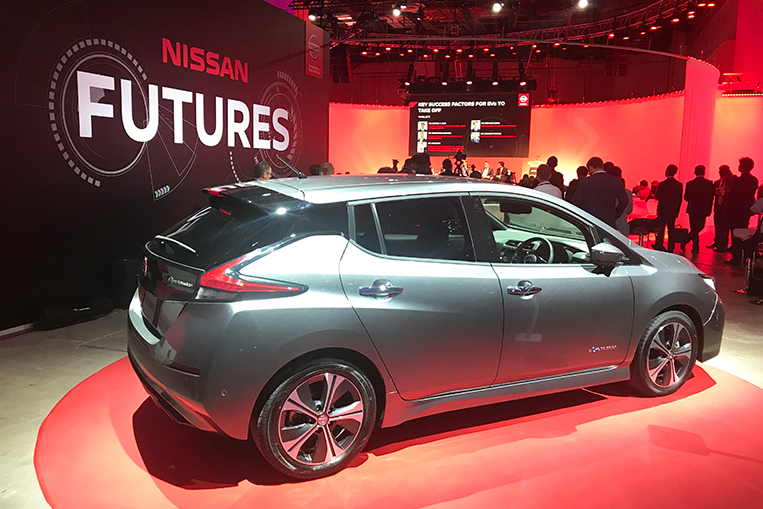
You know an industry is going through a major upheaval (or disruption, as techies like to call it) when its main players start to aggressively jostle for position. In the automotive business, a disturbance of game-changing magnitude is currently taking place thanks to electrification, and Japanese carmaker Nissan is racing to be at the forefront of the revolution.
At a regional symposium in Singapore called “Nissan Futures,” the company excitedly announced that motorists in Southeast Asia are now ready to commence their transition from internal-combustion engines to fully electric motors. According to Yutaka Sanada, the head of Nissan’s Asia and Oceania operations, 37% of car buyers in the region are now open to acquiring an electric vehicle for their next car purchase. That means one in three car shoppers in these parts may already be leaning toward EV models.
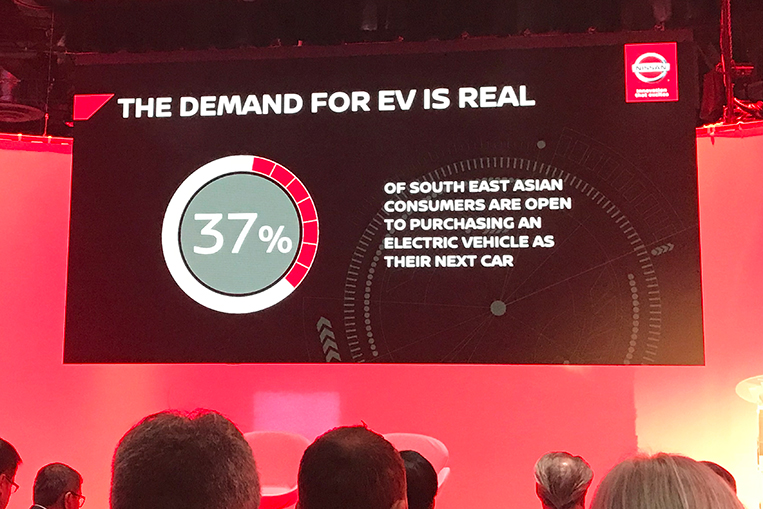
The statistic is part of a study commissioned by Nissan to assess the region’s readiness for electric cars. Depending on whom you ask, it could also be a clever way of influencing consumers and herding them in the direction the car manufacturer wants them to take.
The study—titled “The Future of Electric Vehicles in Southeast Asia”—was conducted by the market research firm Frost & Sullivan in January this year, and consolidated responses from 1,800 participants in Indonesia, Malaysia, the Philippines, Singapore, Thailand and Vietnam. The survey’s salient points were presented to the media by Vivek Vaidya, Frost & Sullivan’s senior vice president for mobility.
Vaidya broke down the above-mentioned 37% into individual results for each of the six countries. Amusingly, the Philippines came out on top, with 46% of car buyers supposedly now willing to consider an EV for their next car. Next are Thailand at 44% and Indonesia at 41%. Malaysia is at 37%, which is basically the six-nation average. Vietnam at 33% and Singapore at 23% round up the survey pool.
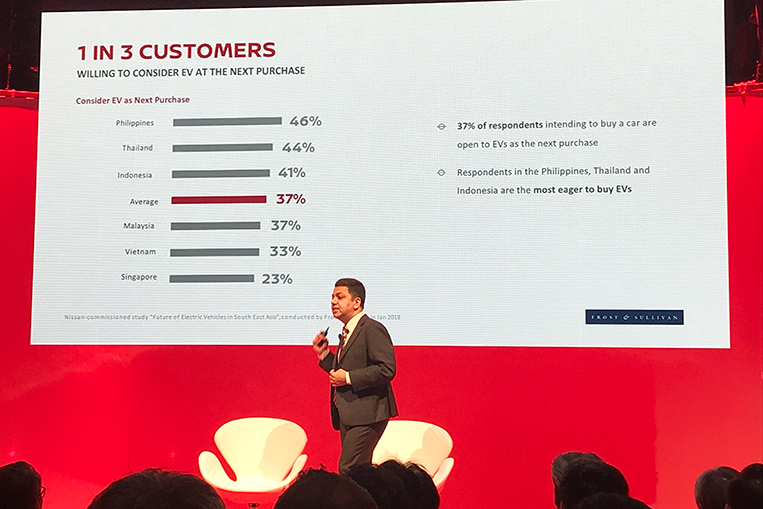
It’s interesting to note that the Philippines—where affordable mass-market cars are the bestsellers—is home to buyers who are apparently most prepared to shift to more expensive EVs, while cash-rich Singapore exhibits the most reluctance to go electric with its residents’ personal transporters. Which underscores the importance of distinguishing “willingness” from “readiness.” Just because a market is eager to try electric vehicles doesn’t mean it is actually capable (financially, politically and logistically) of owning them.
This crucial point explains why the Philippines isn’t included in the list of Asian and Oceanian markets that will receive the all-new Leaf in the next fiscal year. Those markets are Australia, Hong Kong, Malaysia, New Zealand, Singapore, South Korea and Thailand.
Just because a market is eager to try electric vehicles doesn’t mean it is actually capable of owning them
Nissan Philippines president Ramesh Narasimhan told VISOR that his team is “accelerating” the process of bringing the brand’s popular EV to our shores. For this to happen, a few requirements need to be met first, including EV infrastructure and government incentives. You might point at the recently revised automotive taxation scheme as a tangible form of government support, as it now completely exempts EVs (100%) from the excise tax. But here’s the thing: The tax break is immediately negated by costly import duties. The Japan-Philippines Economic Partnership Agreement waives customs levies on Japan-sourced automobiles powered by engines with at least three liters of displacement. This does nothing for the Leaf as it doesn’t have an engine.
And so the all-new Leaf could be priced—even with the excise tax break—at as high as P2,500,000 in the Philippines, Narasimhan estimated. At this price point, it’s doubtful you could find many Filipino takers. All the eagerness and willingness in the world may not be enough to make people choose a premium EV over a similarly sized but much cheaper car.
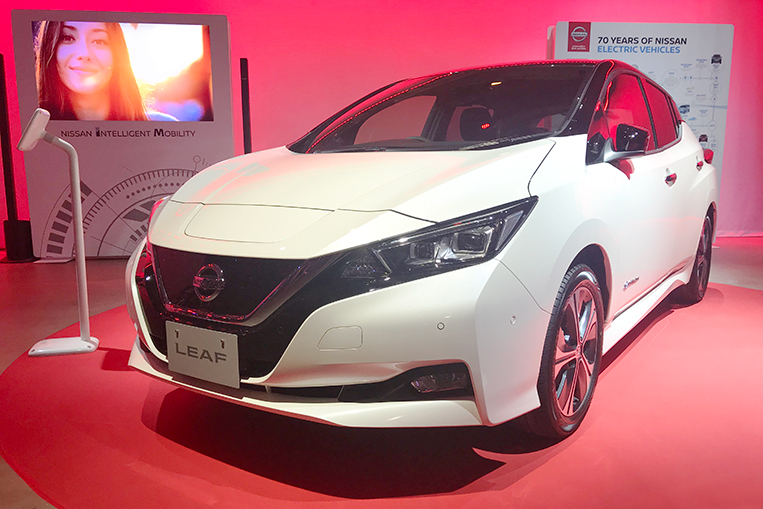
As for the key factors that would convince Southeast Asian car buyers to adopt electric vehicles, safety ranks as the number one consideration overall. Many wonder, for instance, if an EV could wade through floodwater without short-circuiting its owner’s bank account.
For Filipinos, safety is followed by charging flexibility and battery range on their list of concerns when evaluating electric cars. Can they charge the vehicle at home or at the office? How about at the supermarket or on the highway? If they can’t, what is the driving range of the battery on a single full charge? The latter is particularly relevant as horrendous traffic conditions in Metro Manila could significantly shorten an EV’s effective mileage.
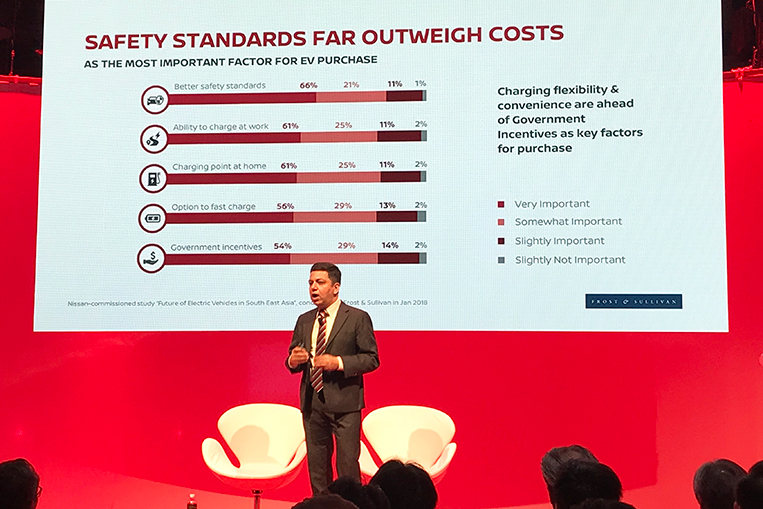
In November, we reported that Nissan Philippines was seriously mulling the possibility of launching the Leaf in 2018. “If you’re asking me if I want to make it happen this year, then the answer is yes,” Narasimhan said. “But there are still issues we need to address.”
If you belong to the 46%, you may still get your wish of parking an EV in your garage before the year is over. Just pray for the kinks to get sorted out fast.

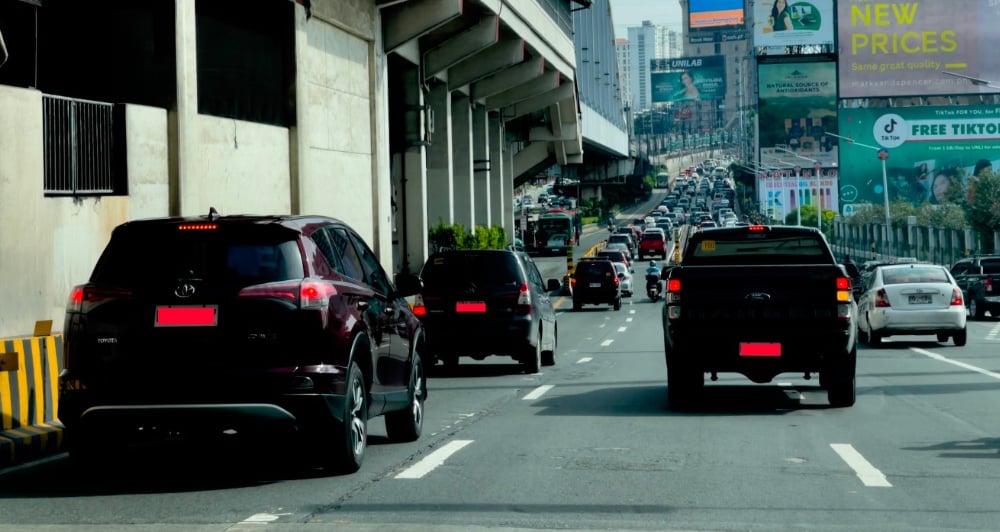
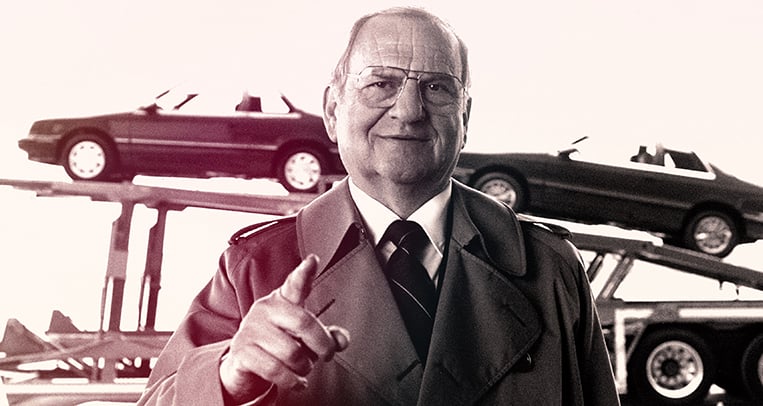
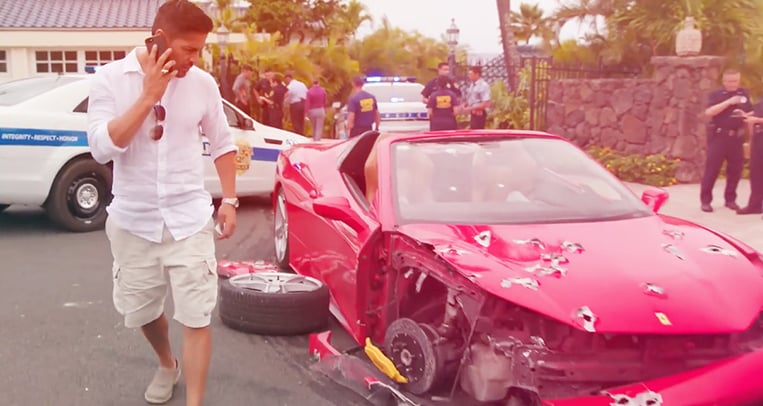
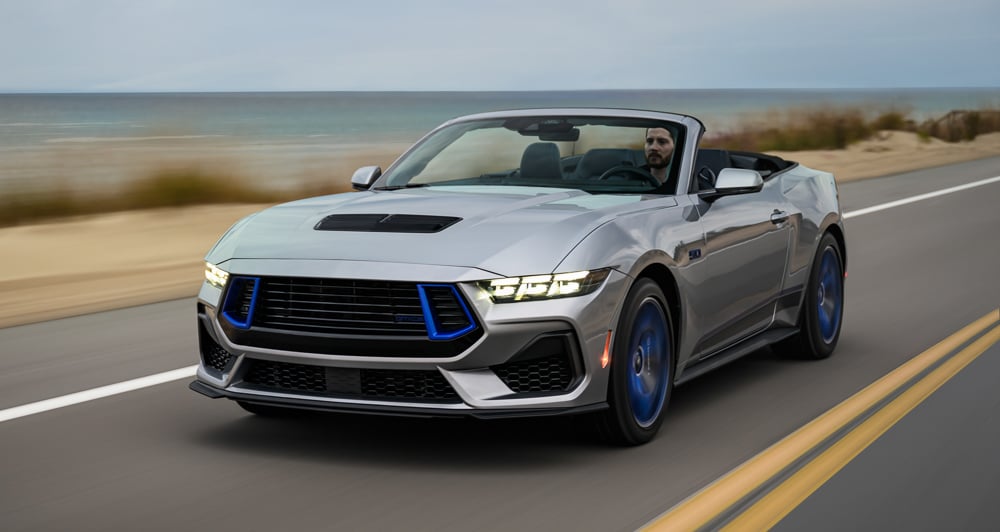

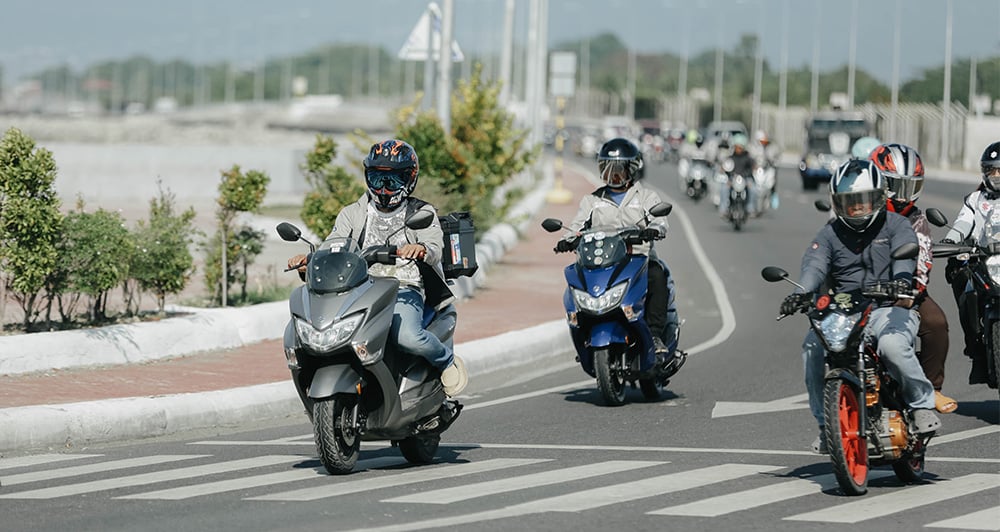
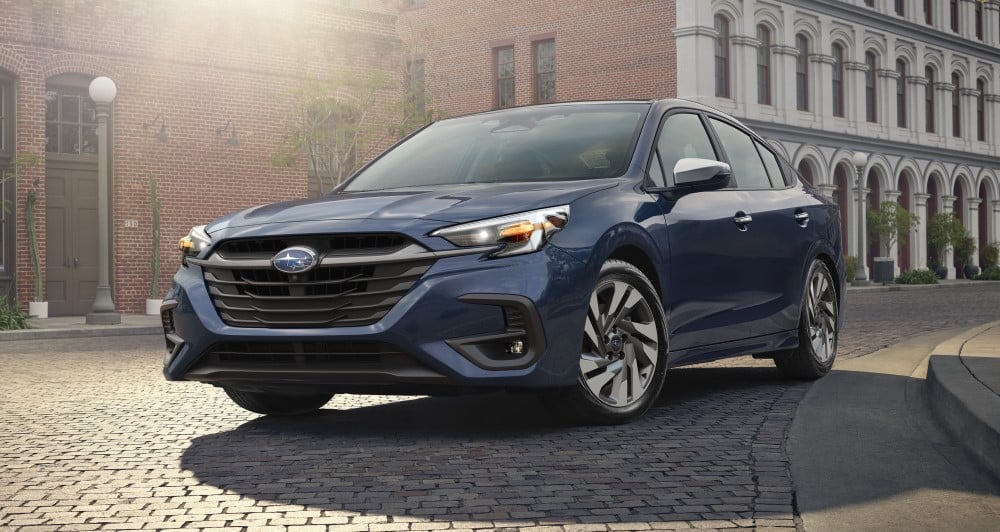
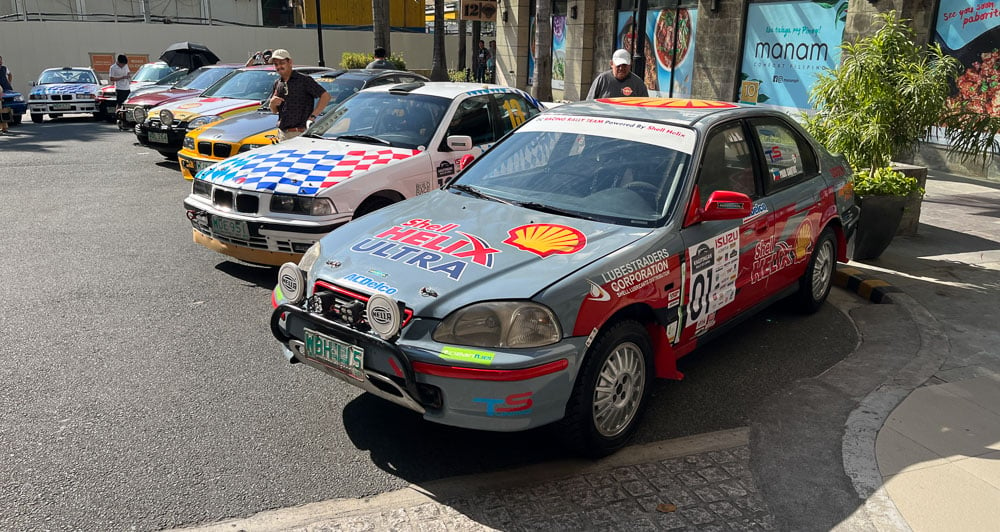
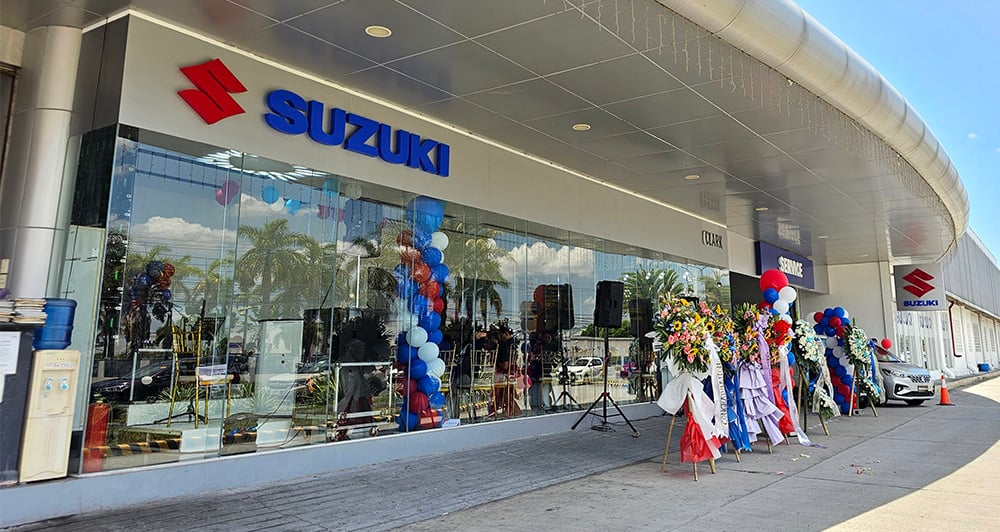
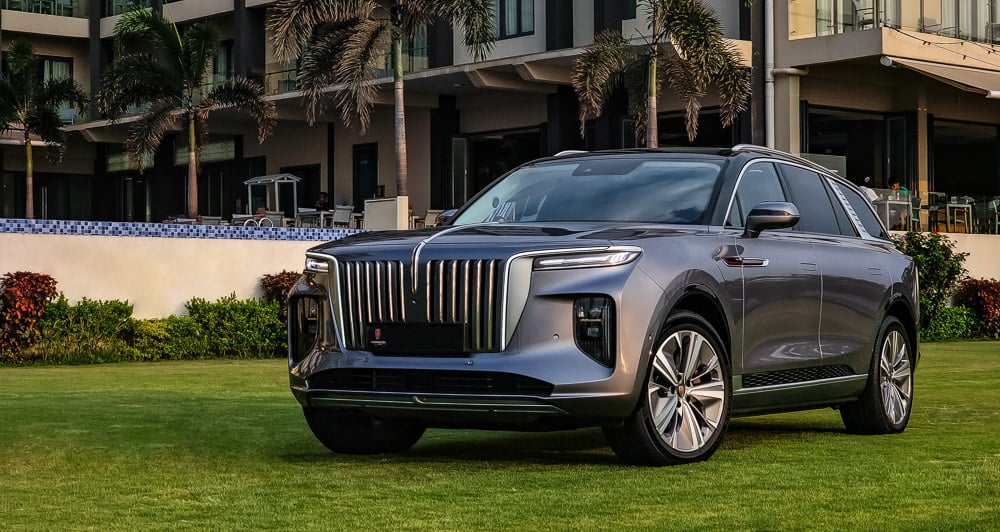
Comments